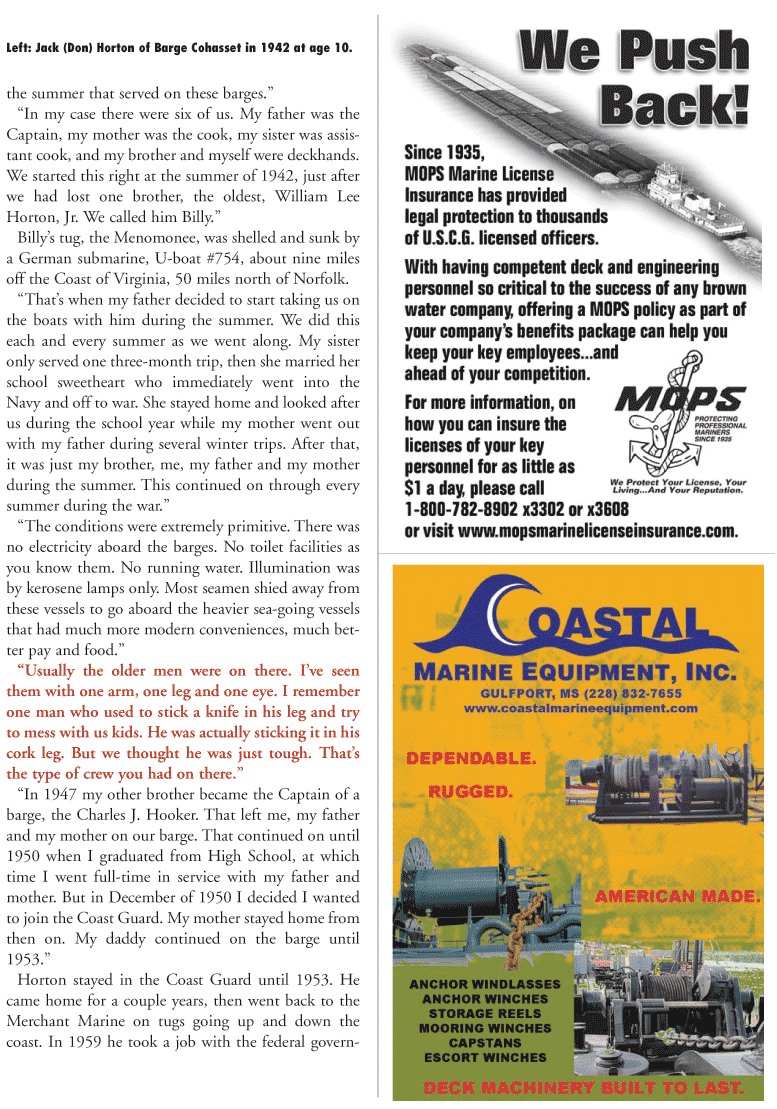
Page 53: of Marine News Magazine (November 2010)
Workboat Annual
Read this page in Pdf, Flash or Html5 edition of November 2010 Marine News Magazine
the summer that served on these barges.” “In my case there were six of us. My father was the
Captain, my mother was the cook, my sister was assis- tant cook, and my brother and myself were deckhands.
We started this right at the summer of 1942, just after we had lost one brother, the oldest, William Lee
Horton, Jr. We called him Billy.”
Billy’s tug, the Menomonee, was shelled and sunk by a German submarine, U-boat #754, about nine miles off the Coast of Virginia, 50 miles north of Norfolk. “That’s when my father decided to start taking us on the boats with him during the summer. We did this each and every summer as we went along. My sister only served one three-month trip, then she married her school sweetheart who immediately went into the
Navy and off to war. She stayed home and looked after us during the school year while my mother went out with my father during several winter trips. After that, it was just my brother, me, my father and my mother during the summer. This continued on through every summer during the war.” “The conditions were extremely primitive. There was no electricity aboard the barges. No toilet facilities as you know them. No running water. Illumination was by kerosene lamps only. Most seamen shied away from these vessels to go aboard the heavier sea-going vessels that had much more modern conveniences, much bet- ter pay and food.” “Usually the older men were on there. I’ve seen them with one arm, one leg and one eye. I remember one man who used to stick a knife in his leg and try to mess with us kids. He was actually sticking it in his cork leg. But we thought he was just tough. That’s the type of crew you had on there.” “In 1947 my other brother became the Captain of a barge, the Charles J. Hooker. That left me, my father and my mother on our barge. That continued on until 1950 when I graduated from High School, at which time I went full-time in service with my father and mother. But in December of 1950 I decided I wanted to join the Coast Guard. My mother stayed home from then on. My daddy continued on the barge until 1953.”
Horton stayed in the Coast Guard until 1953. He came home for a couple years, then went back to the
Merchant Marine on tugs going up and down the coast. In 1959 he took a job with the federal govern-
Left: Jack (Don) Horton of Barge Cohasset in 1942 at age 10.

 52
52

 54
54
